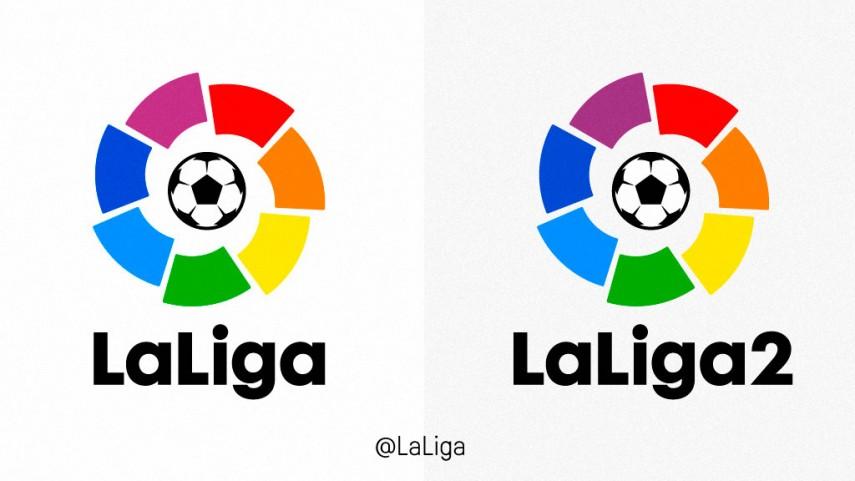In an era where global challenges redefine teh landscape of professional sports, La Liga clubs are at the forefront of innovation, embracing transformative strategies to navigate an increasingly competitive arena. Amidst the disruptions caused by the COVID-19 pandemic, economic fluctuations, and shifting fan engagement paradigms, Spanish football clubs are not just surviving but thriving. From integrating advanced technology in training and match analysis to redefining their marketing approaches and fostering international partnerships, these teams are finding new avenues for success. This article delves into the proactive measures being taken by la Liga clubs, showcasing how adaptability and creativity are enabling them to maintain their status as powerhouses in world football, even in the face of adversity.
Table of Contents
- Innovative Financial Strategies Reshaping La Liga Clubs Amidst Global Pressures
- Sustainable Practices: How La Liga Teams Are Leading the Charge in environmental Responsibility
- Embracing technology: The Digital Transformation of Club Operations and Fan Engagement
- Talent development: La Ligas Focus on Youth Academies to Secure a Competitive Edge
- Final Thoughts
Innovative Financial Strategies Reshaping La Liga Clubs Amidst Global Pressures
Amidst global economic pressures, La Liga clubs are harnessing innovative financial strategies to stay competitive and sustainable. with traditional revenue streams under threat due to diminished matchday earnings and fluctuating broadcasting deals, clubs have turned to diversification and modernization. Some of the most effective strategies include:
- Digital Transformation: Clubs are leveraging technology to enhance fan engagement through virtual experiences and streaming services.
- Strategic Partnerships: collaborations with tech firms and sponsors are creating new revenue opportunities.
- Youth Development Focus: Investing in youth academies not only fosters local talent but also generates potential transfer income.
Notably, clubs are increasingly looking to international markets for growth, implementing strategies that expand their global footprint. By participating in friendly matches abroad and engaging in marketing campaigns that target specific demographics, they aim to cultivate a more extensive supporter base. A summary of key initiatives can be found in the table below:
| Club | Initiative | Target Market |
|---|---|---|
| FC Barcelona | International Tours | Asia and North America |
| Real Madrid | Digital Merchandise Sales | Europe and latin America |
| Atletico Madrid | Youth Academy Exchanges | Africa and Southeast Asia |
Sustainable Practices: How La Liga teams Are Leading the Charge in Environmental Responsibility
La Liga clubs are increasingly adopting innovative sustainable practices to align with global environmental standards. Several teams have launched initiatives aimed at reducing carbon footprints, promoting eco-friendly operations, and engaging fans in sustainability efforts. Among these initiatives are:
- Green Stadium Projects: Stadiums are being retrofitted with solar panels and energy-efficient lighting to minimize energy use.
- Sustainable Transport Initiatives: Clubs are promoting the use of public transportation for fans attending matches by providing discounts and incentives.
- Waste reduction Programs: Partnerships with local organizations to ensure that waste generated during matches is minimized, composted, or recycled.
Furthermore, La Liga has put forth a “climate challenge” aimed at measuring and reducing the league’s overall environmental impact. An engaging example of collaboration can be seen in a recent partnership between various clubs to plant trees across the region. This effort not only aims to offset carbon emissions but also contributes to biodiversity. Here’s a quick overview of some clubs and their notable initiatives:
| Club | Initiative | Year Launched |
|---|---|---|
| FC Barcelona | Solar Energy System | 2021 |
| Real Madrid | Zero-Waste Policy | 2020 |
| Atlético Madrid | Eco-Friendly Transport Plans | 2019 |
Embracing Technology: The Digital Transformation of Club Operations and Fan Engagement
In an era of unprecedented change, La Liga clubs are harnessing cutting-edge technology to redefine their operational frameworks and enhance fan experiences. The integration of digital tools has allowed these teams to streamline internal processes, ensuring efficient management while navigating the complexities of modern sports. From elegant data analytics that inform training and player performance to the implementation of cloud-based platforms for scheduling and communication, clubs are creating a dynamic operational environment that promotes agility and responsiveness.
Moreover,fan engagement has reached new heights through the use of mobile applications,augmented reality,and social media platforms. These initiatives not only foster a sense of community among supporters, but also provide real-time updates and interactive experiences during matches. Clubs are investing in digital loyalty programs that reward fans for their engagement, transforming the traditional spectator model. A glimpse into the strategies adopted by various clubs reveals a common goal: to leverage technology as a means to not just adapt, but thrive in a rapidly changing landscape.
| Technology | purpose |
|---|---|
| Data Analytics | Optimize player training and performance assessment |
| Mobile Apps | Enhance fan engagement and provide live updates |
| Social Media | Build community and promote marketing initiatives |
| Augmented Reality | Create immersive game-day experiences for fans |
Talent Development: La Ligas Focus on Youth Academies to Secure a Competitive Edge
In an era where financial disparities among football clubs are ever-increasing, the focus on youth academies has become pivotal for teams in La Liga. This strategic emphasis is not merely about cultivating homegrown talent; it is a calculated move to ensure long-term sustainability and competitive advantage. Clubs are investing heavily in their academies,recognizing that a robust youth setup can not only produce elite players but also generate significant revenue through player sales.notable clubs such as FC Barcelona and Real Madrid have set the standard, consistently churning out high-caliber talent that has thrived on both domestic and international stages.
To further this initiative, La Liga clubs are adopting innovative training methodologies and enhancing their facilities to attract the best young players. these academies focus on holistic development—combining technical skills, physical conditioning, and psychological preparedness for the rigors of professional football. As part of their approach, clubs are implementing structured scholarship programs, partnerships with local schools, and community engagement strategies to build a stronger pipeline of talent. Key elements of this strategy include:
- Customized Training Programs: Tailored development plans for players of varying ages.
- Advanced Scouting Networks: Establishing connections with grassroots football to identify potential talent early.
- Collaboration with Coaches: Providing ongoing education and support for youth coaches to enhance training quality.
| Club | Notable Youth Players | Year Graduated |
|---|---|---|
| FC barcelona | Xavi,Iniesta | 1999,2002 |
| real Madrid | Raúl,Casillas | 1994,1999 |
| Atletico Madrid | Fernando Torres | 2001 |
Final Thoughts
La Liga clubs are not just navigating the turbulent waters of global challenges; they are actively charting new courses towards sustainable success. through strategic innovation, adaptive leadership, and a commitment to enhancing their international appeal, these clubs are positioning themselves as leaders in the football landscape. As they embrace new technologies, diversify revenue streams, and prioritize fan engagement, the Spanish leagues exemplify resilience in the face of adversity.The road ahead is undoubtedly fraught with obstacles, but La Liga’s proactive approach sets a compelling precedent for other sporting leagues worldwide. As stakeholders, fans, and players alike rally behind these initiatives, the evolution of La Liga serves as a testament to the power of adaptability in a rapidly changing global environment.





